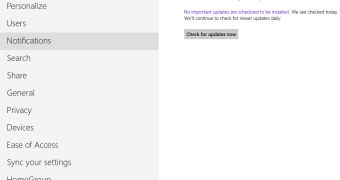The brand new Windows 8 is an operating system that comes with a wide array of improvements, including security enhancements supposed to keep users and their data on the safe side.
As a result, the world renowned security company Kaspersky Lab said in its IT Threat Evolution report that Microsoft’s products are no longer among the top 10 products with vulnerabilities, stepping into a group of software solutions that provide much more advanced security options to its users.
“Microsoft products no longer feature among the Top 10 products with vulnerabilities. This is because the automatic updates mechanism has now been well developed in recent versions of Windows OS,” Kaspersky said.
While Windows stepped out of the top 10 vulnerable products, Kaspersky places Oracle Java on the leading spot, as it was affected by highly critical and extremely critical flaws.
Flash Player, Adobe Reader, iTunes, Winamp and QuickTime also made the top ten, according to the report.
Windows has always been considered a vulnerable operating system, not only when it comes to malware and hack attacks, but also because of several glitches found in the main OS.
Microsoft releases monthly updates as part of its “Patch Tuesday” cycle, as well as larger service packs comprising the most essential fixes for a specific platform.
It seems however that the Redmond-based technology company is considering a different approach, one that could keep users even safer while running its software. Microsoft could dump service packs altogether, and instead focus on periodic updates more than ever, in an attempt to patch bugs and flaws faster than before.
Windows 8 for example may not get a service pack at all, while sources familiar with the matter are claiming that a Service Pack 2 for Windows 7 may be dropped in favor of smaller updates delivered on a regular basis.

 14 DAY TRIAL //
14 DAY TRIAL //